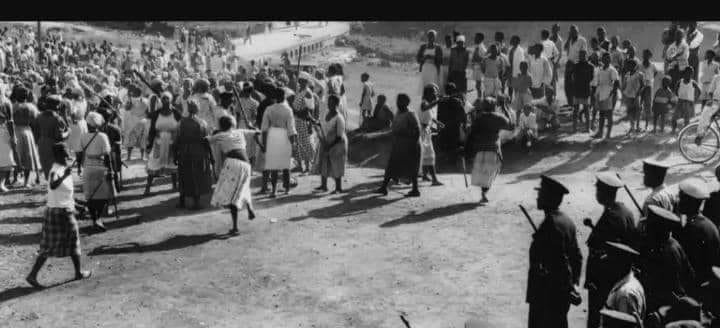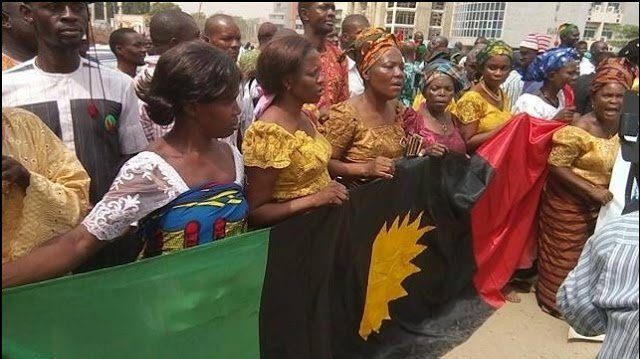The Aba Women's Riot (1929), also known as the Women's War, stands as a remarkable event in the history of Nigeria. This uprising, primarily driven by women, was a significant demonstration against colonial rule and unfair practices. Let's delve into the various facets of this historic event, including the causes, key figures, and its impact on Nigerian society.
Background of the Aba Women’s Riot (1929)
The Aba Women's Riot (1929) was a response to the colonial government's policies and the exploitation faced by the local population. The riot occurred in the southeastern region of Nigeria, primarily in the towns of Aba and Owerri.
Causes of the Riot
Several factors contributed to the outbreak of the Aba Women's Riot (1929):
- Taxation: The colonial administration's decision to impose direct taxes on women was one of the primary triggers. Women were already burdened with various economic responsibilities, and this additional financial strain was seen as unjust.
- Warrant Chiefs: The British had introduced the system of warrant chiefs, who were often corrupt and abused their power. This system disrupted the traditional governance structure and was resented by the local communities.
- Economic Exploitation: The colonial economic policies favored the British and marginalized the local populace. This exploitation extended to the agricultural sector, where women played a crucial role.
The Role of Women in the Riot
Women were at the forefront of the Aba Women's Riot (1929). Their involvement was crucial, as they organized protests, marched, and confronted the colonial authorities. The women demonstrated remarkable solidarity and determination, challenging the oppressive systems in place.
Key Events During the Aba Women’s Riot (1929)

The Aba Women's Riot (1929) unfolded in several stages, each marked by significant events and actions taken by the women.
Initial Protests
The initial protests began in November 1929, when women from the Bende District gathered to protest against the warrant chiefs and the proposed taxation. These protests quickly spread to other regions, including Aba and Owerri.
Mass Mobilization
As the protests gained momentum, more women joined the movement. They organized themselves into groups, each with specific roles and responsibilities. This mass mobilization was a testament to the organizational skills and unity of the women involved.
Confrontation with Colonial Authorities
The confrontation with colonial authorities was inevitable. The women demanded the removal of the warrant chiefs and the abolition of the proposed taxes. The colonial administration, however, responded with force, leading to violent clashes.
Casualties and Repression
The colonial authorities' response was brutal. Several women were killed, and many others were injured or arrested. Despite the repression, the women remained resolute and continued to demand justice.
Impact of the Aba Women’s Riot (1929)
The Aba Women's Riot (1929) had far-reaching consequences, both immediate and long-term.
Immediate Impact
The immediate impact of the riot was the suspension of the proposed taxes and the eventual review of the warrant chief system. The colonial administration was forced to recognize the grievances of the local population and make concessions.
Long-term Impact
In the long term, the Aba Women's Riot (1929) had a profound influence on the Nigerian independence movement. It demonstrated the power of collective action and inspired future generations to challenge colonial rule and fight for their rights.
Legacy of the Aba Women’s Riot (1929)

The legacy of the Aba Women's Riot (1929) is evident in various aspects of Nigerian society.
Empowerment of Women
The riot is often celebrated as a symbol of women's empowerment in Nigeria. It highlighted the critical role women played in resisting oppression and advocating for social justice.
Cultural Significance
The Aba Women's Riot (1929) is a significant event in Nigerian history, often commemorated and studied for its impact on the country's socio-political landscape. It serves as a reminder of the resilience and strength of the Nigerian people.
Places Associated with the Aba Women’s Riot (1929)
Several locations were central to the events of the Aba Women's Riot (1929):
- Aba: The town of Aba was a focal point of the protests, where many significant events took place.
- Owerri: Another key location, where women gathered and protested against the colonial authorities.
- Bende District: The initial protests began here, setting the stage for the wider movement.
Conclusion
The Aba Women's Riot (1929) stands as a testament to the power of collective action and the resilience of women in the face of oppression. This historic event not only challenged colonial rule but also laid the groundwork for future movements towards independence and social justice in Nigeria. The legacy of the riot continues to inspire and empower generations, reminding us of the importance of standing up against injustice.
Frequently Asked Questions (FAQ)
1. What was the main cause of the Aba Women’s Riot (1929)?
The primary cause was the imposition of direct taxes on women by the colonial administration, along with the corrupt practices of the warrant chiefs.
2. Who were the key figures in the Aba Women’s Riot (1929)?
While the movement was largely leaderless, notable figures include Nwanyeruwa, a woman who played a significant role in sparking the initial protests.
3. What was the outcome of the Aba Women’s Riot (1929)?
The riot led to the suspension of the proposed taxes and a review of the warrant chief system. It also inspired future resistance against colonial rule.
4. How did the Aba Women’s Riot (1929) influence the Nigerian independence movement?
The riot demonstrated the power of collective action and inspired future generations to challenge colonial rule and fight for their rights, contributing to the broader independence movement.
5. Why is the Aba Women’s Riot (1929) significant in Nigerian history?
It is significant because it highlighted the critical role of women in resisting oppression and advocating for social justice, leaving a lasting legacy on Nigerian society.


